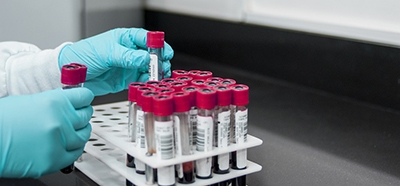Medical Testing – Part 2
Why do you fast before a blood test?
| Download this episode | Physicians rely on medical tests to detect a condition and to determine if a treatment is successful in managing the condition. Before undergoing a blood test, your clinician is likely to tell you to fast, meaning you should not eat or drink anything but water for several hours before the test. For certain tests, you may be asked not to drink alcohol for a longer period of time. So why exactly are you required to fast before such a test? When you eat and drink, your bloodstream absorbs sugar, fat, protein, and other nutrients in those foods and beverages. That could affect the results of certain blood tests and lead to the wrong diagnosis. It’s actually good to drink water before a blood test as it helps keep more fluid in your veins, which can make it easier to get a sample of your blood. Always ask your doctor any questions you have about preparing for your test. Taking the right steps before a test helps make sure your results will be accurate. | Raynaud’s syndrome, also known as Raynaud’s disease or Raynaud’s phenomenon, is a condition that causes brief episodes where little or no blood flows to certain parts of your body after exposure to cold or sometimes stress. It mostly affects fingers and or toes. A cold stimulation test involves placing your fingers in an ice water bath to find out if you have Raynaud’s syndrome. During this test, a small device that measures temperature will be taped to your fingers and your doctor will record the temperature. You will then place your hands into an ice water bath for 20 seconds. You will remove your hands from the ice water. Your provider will record your finger temperature every five minutes for up to 20 minutes, or until your temperature returns to the same as it was before the ice water bath. If it takes 20 minutes or more for your finger temperature to return to normal after the ice water bath, it probably means you have Raynaud’s syndrome. | You’ve probably heard a physician order a CBC on an episode of a medical show on television, but what is it and why is it so important? A CBC is a complete blood count, a test that measures many different parts and features of your blood. A doctor will likely order a complete blood count as part of a checkup or to monitor your overall health. The test may also be used to help diagnose blood diseases, infection, immune system disorders, or other medical conditions and to check for changes in an existing blood disorder. A CBC counts the cells in your blood. There are many reasons your levels may not be in the normal range. For example, a low white cell count may be a sign of an autoimmune disorder or cancer while a high white cell count may be a sign of an infection. If any of your levels are abnormal, it doesn’t always mean you have a medical condition that needs treatment. Talk with your provider to learn what your results mean. | Kidney stones are small pieces of material that form in one or both of your kidneys. Kidney stones form when you have high levels of certain minerals or salts in your urine. A kidney stone analysis is a test to find out what a kidney stone is made of. This information helps your clinician develop a plan to help you reduce your risk of forming more stones in the future. To collect a kidney stone, you will need a kidney stone strainer to filter your urine and a clean container for your stone. A kidney stone strainer is a device made of fine mesh or gauze. Your provider may give you a strainer, or you may get one from a drug store. Check the strainer carefully after each time you urinate to look for a stone. It may look like a grain of sand or a tiny piece of gravel. A stone may pass at any time of the day or night. So, it’s important to filter all your urine every time you urinate until you find a stone. If you find a stone, put it in a clean container with a lid and return it to your doctor or lab. | Maybe that rash you have is just a reaction to something you ate or drank, or maybe it’s something more. A rash evaluation is a test to find out what is causing a condition also known as dermatitis. A rash is an area of skin that is red, irritated, and usually itchy. Most rashes happen when your skin touches a substance that irritates it. This is known as contact dermatitis. There are different ways to do a rash evaluation. The type of test you get will depend on your symptoms and medical history. To test for allergic contact dermatitis, your doctor may give you a patch test, which involves placing small patches on your skin that contain small amounts of allergens, substances that cause an allergic reaction. You’ll wear the patches for 48 to 96 hours and then your doctor will remove them and check for rashes or other reactions. If you had a patch test and have itchy, red bumps or swelling at any of the testing sites, it means you are probably allergic to the substance tested.
Transcript
Raynaud’s syndrome
Transcript
What is a CBC?
Transcript
Kidney stones
Transcript
Maybe it’s more than just a rash
Transcript
